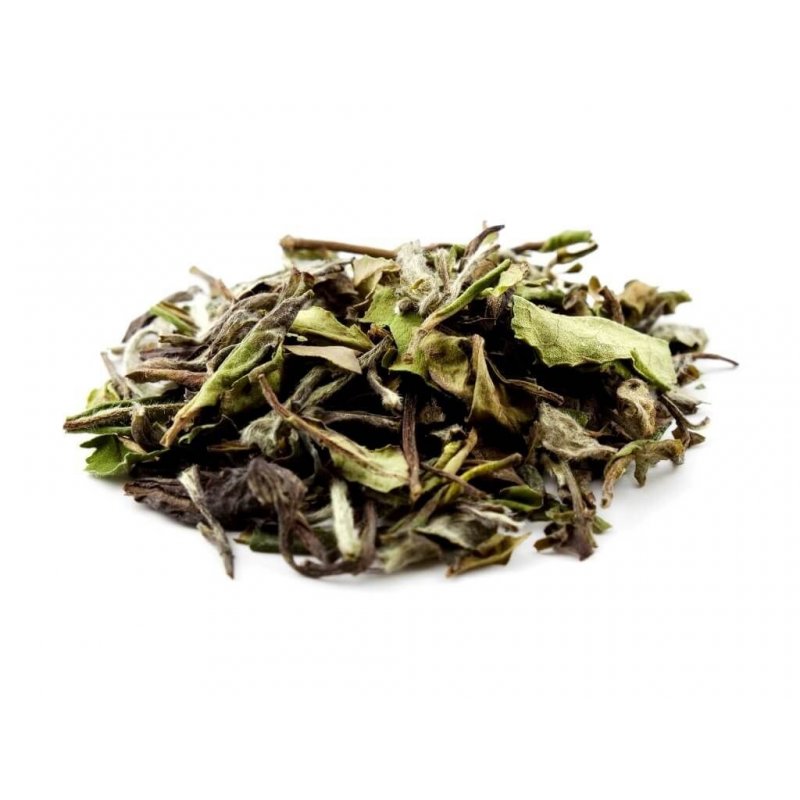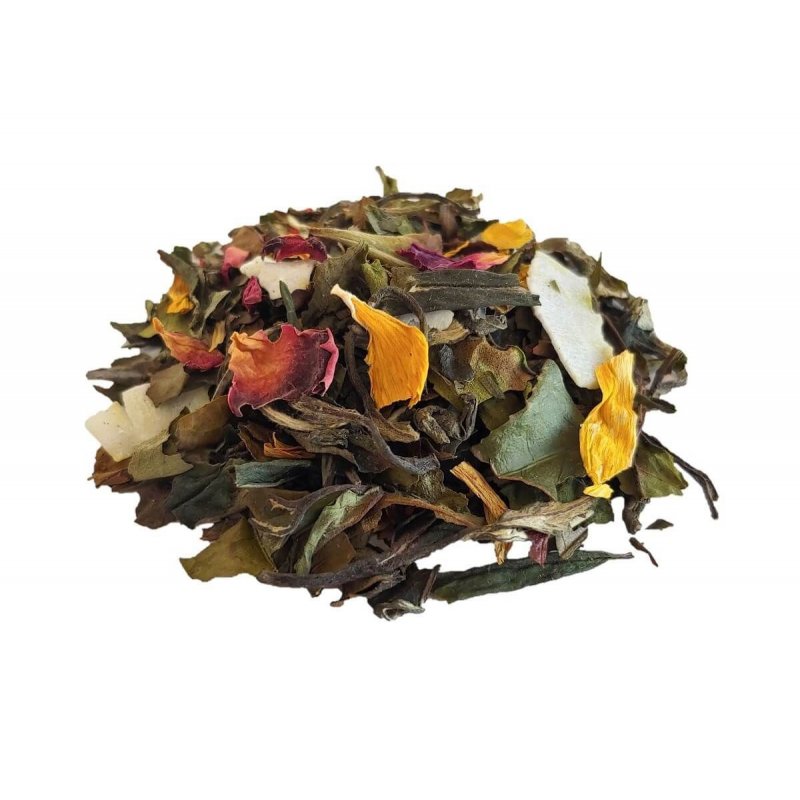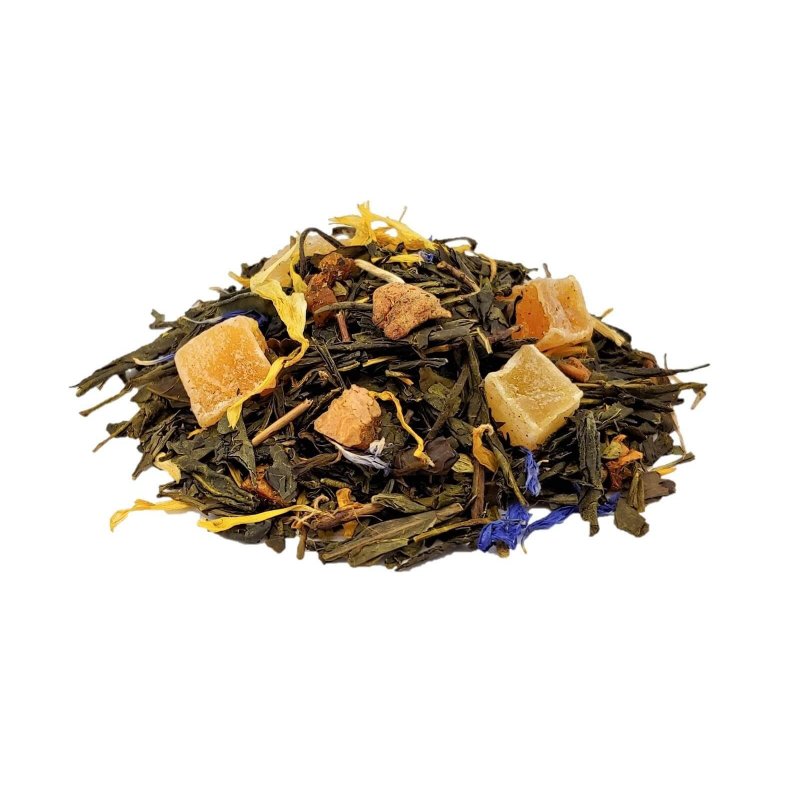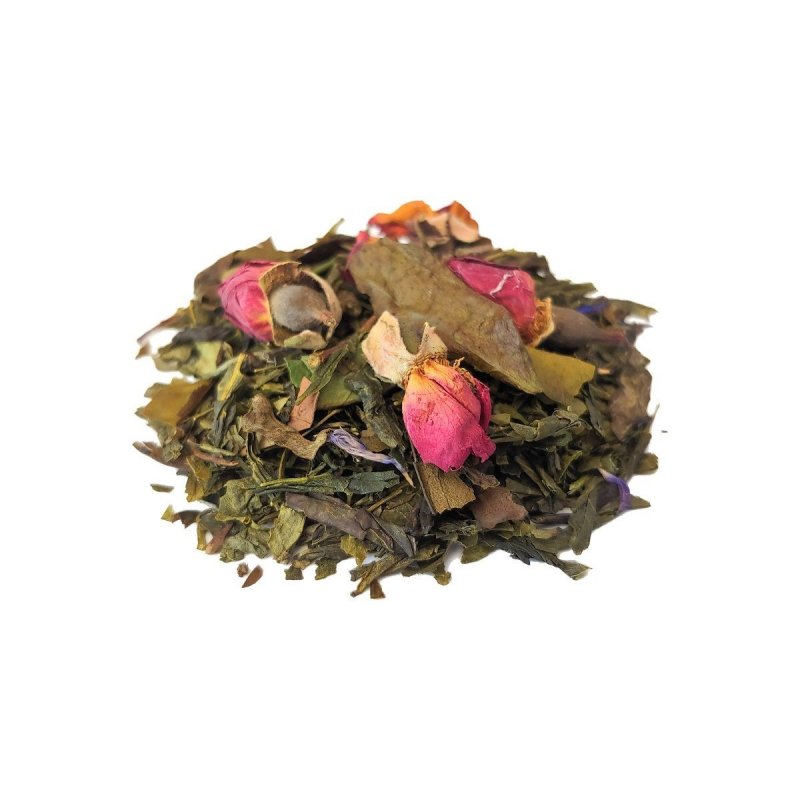White tea with Lemon & Ginger
Pai Mu Tan | Sencha | Ginger

Fast delivery worldwide
Sent by: DHL, DPD, UPS, MRW, CTT
White Tea Lemon and Ginger
Ingredients: White Tea Pai Mu Tan (51%), Sencha Green Tea, ginger pieces (10%), lemon peels, lemon grass and natural lemon-ginger flavors.
Curiosities:
White Tea - Currently, white tea is the fusion of several varieties of tea grown since the 17th century in Fujian province. Originating from the Camellia Sinensis plant, white tea is less processed than black and green teas. Its use dates back to the years 960 to 1270 during the Song Dynasty when white tea was consumed exclusively by Emperor Huizong.
White tea is a diuretic, DETOXIFIER, and metabolism booster. However, it contains a higher concentration of catechins (strong natural antioxidants). Compared to green tea, white tea has a milder taste. Its consumption can contribute to a good mood through its beneficial action in strengthening the immune system, as well as relieving stress. Can contain antimicrobial and antibacterial properties.
Lemon - This citrus fruit with an acidic flavor comes from the lemon tree, a tree native to Asia, including India and China. Its production is believed to have started more than 2500 years ago in Northeast India. Until the 10th century, the cultivation of lemon trees was restricted and only produced for ornamental purposes. From the 11th century onwards, the Arabs were responsible for its diffusion throughout Europe and Africa. It will be in the 15th century that the LEMON have the most diverse functions in medicine, cooking, and cleaning.
Lemon contains antioxidant properties, fiber, and vitamin C essential for strengthening the immune system against colds and flu. Lemon consumption can help with good digestion and bowel regulation. Can be a great ally for those who want to lose weight thanks to its contribution to reducing appetite. Also can help in the treatment of constipation and asthmatic bronchitis. Lemon may contribute to the production of collagen and thus the rapid healing of skin wounds.
Ginger - With more than 5000 years of existence, ginger is produced on a large scale in countries with tropical or subtropical climates such as India, China, Indonesia, and Fiji. This herbaceous plant grows easily in fertile, water-rich soils. Ginger was once considered one of the most expensive commodities. In such a way only one kilo of this product had the same monetary value as a sheep.
Ginger is often used to treat inflammation and infections. Its use can help fight indisposition, throat irritation, heartburn, hypertension, REFLUX, breath, menstrual cramps, and loss of appetite. In addition, it may contribute as an auxiliary complement in the treatment of gastritis, gastric ulcers, or asthmatic bronchitis. It can also promote the relief of muscle pain and body nutrition.
Water temperature: 80º
Infusion time: 2 to 3 minutes.
Recommended amount: 1 teaspoon per person. Approximately 2 g/cup.
Method of preparation: Place 1 teaspoon in a container with 250ml of boiled water (+-80º). Cover it and let it rest for 2 to 3 minutes. Finally, strain and your tea will be ready to consume, either hot or cold.
Store in a cool (max. 20º) and dry (max. 60% humidity) place.
NOTE: The image shown was made in our company, however, the type of cut and the dimensions of the ingredients in the mixture may vary slightly from batch to batch.

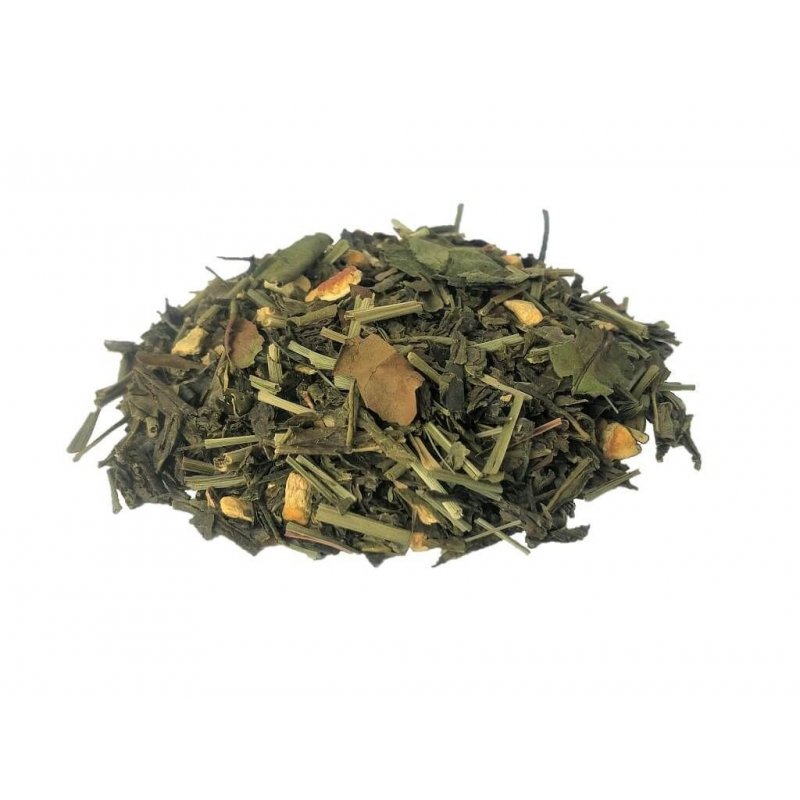


 Reviews
Reviews 
